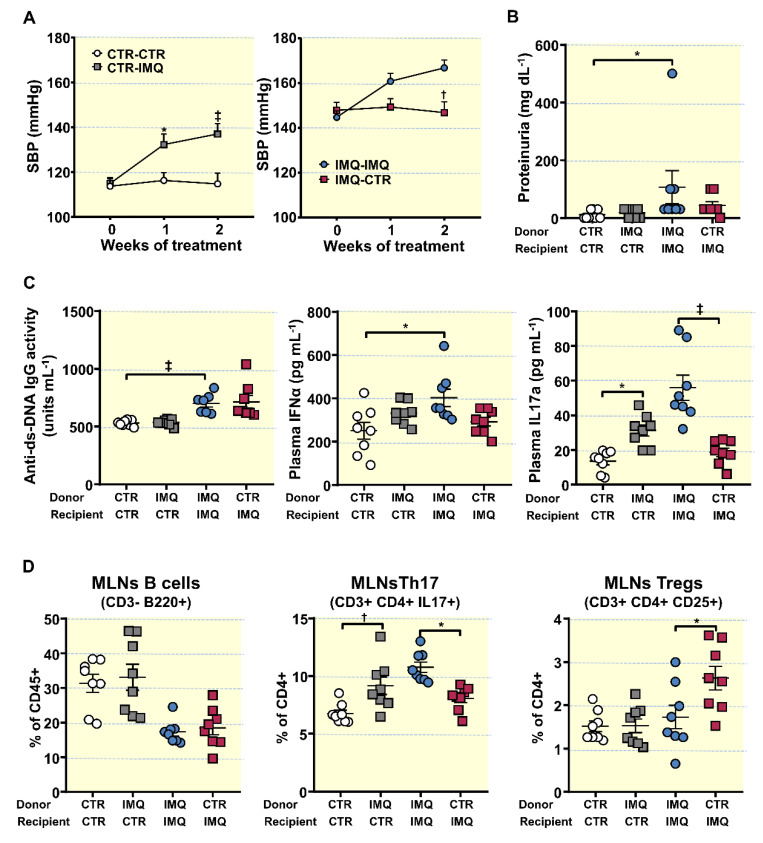Figure 5.
Effects of faecal microbiota transplants (FMT) on the progression of systolic blood pressure (SBP), proteinuria, disease activity, plasma cytokine levels, and lymphocyte proliferation in mesenteric lymph nodes. (A) SBP determined via tail-cuff plethysmography. (B) Proteinuria, (C) Plasma double-stranded DNA (anti-ds-DNA) autoantibodies, interferon (IFN)α, and interleukin (IL)17a levels. (D) Populations of relevant lymphocytes in mesenteric lymph nodes: Total B lymphocytes, Th17, and Regulatory T cells (Treg), obtained with flow cytometry. Data is represented as means ± SEM. The evolution of tail SBP was analysed by two-way ANOVA with the Tukey’s multiple comparison test. The rest of variables by unpaired t-test. * p < 0.05, † p < 0.01, ‡ p < 0.001 compared to the CTR-CTR group; * p < 0.05, † p < 0.01, ‡ p < 0.001 compared to IMQ-IMQ group. CTR-CTR, Control mice (CTR) transplanted with microbiota from CTR; CTR-IMQ, CTR mice transplanted with microbiota from imiquimod (IMQ)-treated mice; IMQ-IMQ, IMQ transplanted with microbiota from IMQ; and IMQ-CTR, IMQ transplanted with microbiota from CTR.

